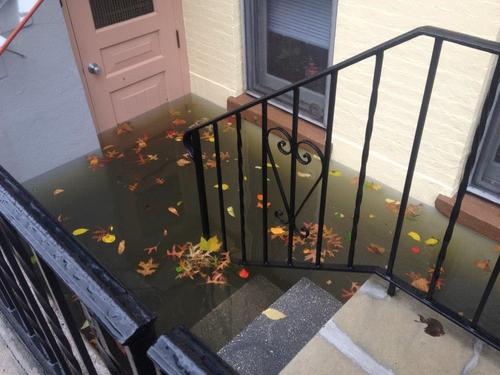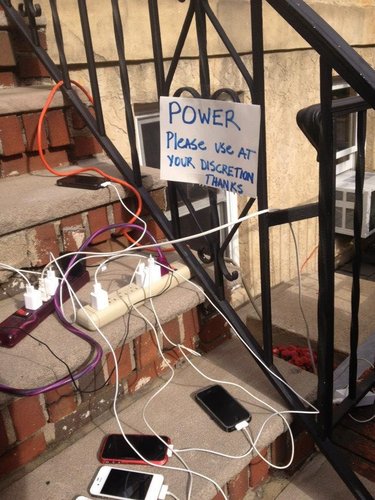Thankfully our apartment did not flood. However, our neighbors in ground level apartments starting just a block west from us and further west and south were not so lucky. Despite the discomfort of days without electricity, we’re grateful that was all the storm did to us.
Here’s a photo I took of a typical flooded apartment:

The damage to Hoboken is deep, but I acknowledge the devastation is widespread. I thought I knew how bad things were elsewhere by listening to dozens of hours of coverage on our small transistor radio, but nothing prepared me for what the photos and videos depicted.
A collective tragedy like a natural disaster can often force a personal tragedy like HIV to the background, at least until the communal crisis is over. And that’s as it should be. Wonderful examples of this principle were the “charging stations” that popped up across the city.
I waited for hours to get my cell phone charged. It obviously was worth it to me since I needed the power, but the unexpected added value was the camaraderie of neighbors.
After I thanked one of the charging station owners, she said, “No need, any of us would have done the same thing.”
I don’t know that any of us would have, but many did. And that gives me hope.
People can come together when needed. People can be moved to action. I hope that we all remember these truths after the flood waters recede.








4 Comments
4 Comments